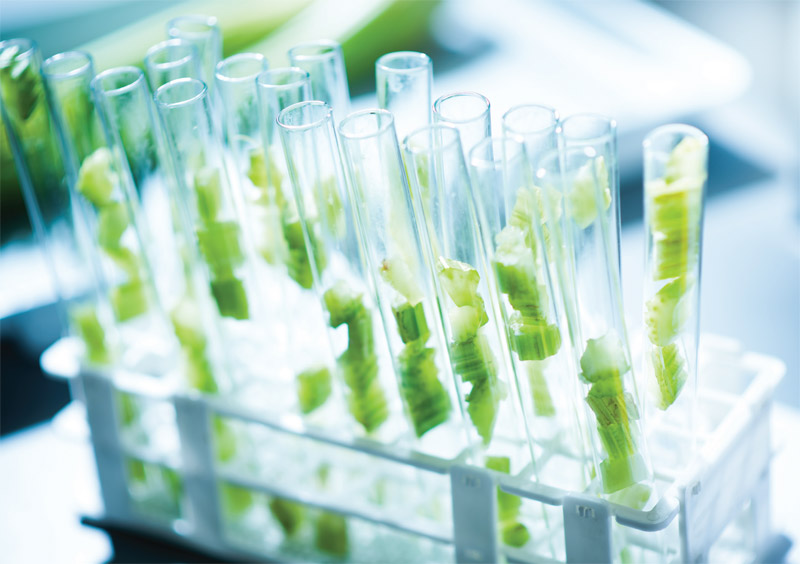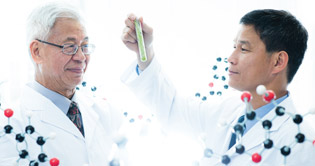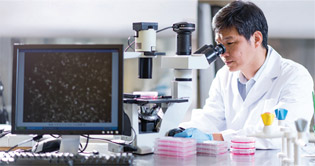
The PolyU-developed novel inhibitor Apigenin Flavonoid Dimer, which can be used for overcoming multidrug resistance in cancer cells, has been licensed for the development of oral versions of more effective cancer drugs.
Diagnosed with breast cancer, Pamela took Paclitaxel, an anticancer drug, for some time. Unfortunately, like many other patients, she was eventually found to be multidrug resistant, with initially treated tumours reviving and developing resistance to multiple anticancer agents. Thanks to a PolyU research on multidrug resistance, there is now hope for Pamela and patients suffering from breast or other cancers.

The invention developed by Prof. Larry Chow(right) and Prof. Bill Chan will be used to re-develop Paclitaxel for treating breast cancer.
Breast cancer is among the most dreaded diagnoses a woman can receive, and in Hong Kong, one out of every 17 women may contract this ravaging disease during her lifetime. Chemotherapy can help, but also has the potential to harm healthy cells and cause side effects. And in some cases, it may not prove effective due to drug resistance in cancer cells – one of the most common reasons for cancer treatment failure.
No matter how effective a drug is, it is of no use if cancer cells develop drug resistance. With this challenge in mind, a cross-disciplinary research team led by Prof. Larry Chow and Prof. Bill Chan at the Department of Applied Biology and Chemical Technology has derived a new inhibitor called Apigenin Flavonoid Dimer from a natural nutrient. Extractable from a wide range of fruit and vegetables, especially parsley, celery and the chamomile used in brewing tea, this nutrient can prevent drug efflux and offer better treatment outcomes.
"The inhibitor can specifically bind to the cancer cell's drug pump and reverse cancer drug resistance," said Prof. Chow. "More importantly, it is 10 times more potent and three times safer than the best inhibitor available on the market. The inhibitor only targets the tumour and causes no damage to normal tissues. Just a tiny dose can produce remarkable healing effects."
Supported by a global oncology specialist company, Kinex Pharmaceuticals, Inc., this invention will be used to first re-develop Paclitaxel, a drug commonly used in treating breast cancer, and then develop oral versions of cancer drugs currently administered through intravenous injection. The research team is also exploring a new strategy to increase dimer structural diversity to produce a large pool of flavonoid dimers for matching various cancer drugs. ♦

